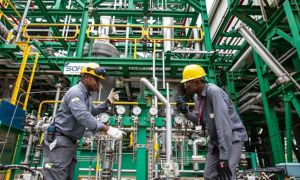Type of activity
Chemistry
Oil & Gas
Refining

Or , our new artificial intelligence tool.

We are active in the exploration, development and production of hydrocarbons and natural gas, refining and chemicals in the United Arab Emirates. With our partner ADNOC, we work to ensure a stable and affordable gas supply for the country, thus contributing to making it not only self-sufficient, but also a gas exporter. Our experience in the development of the Ghasha concession, which is scheduled to start production around the middle of the next decade, will provide essential support for accelerated field production, enable further cost optimisation, and ensure that we extract maximum value from the discovery. Finally, the Ruwais refinery, the fourth largest in the world in terms of production capacity, allows us to be highly competitive also in crude oil processing.
We are present in the United Arab Emirates and in the Middle East along the entire energy chain, where we pursue our strategy of geographical and technological diversification to help meet the growing demand for energy. Also in these countries, our goal is to achieve carbon neutrality (Net Zero) by 2050, through a pathway of reducing emissions from products and processes in our operations.
Activity start date: 2018 – present
We hold a 25% interest in the mega offshore concession known as Ghasha, which includes the Hail, Ghasha, Dalma and other gas fields. They are located in the Al Dhafra region of the Arabian Basin and are estimated to contain several trillion standard cubic feet of gas. The concession could meet over 20% of the country's gas demand and, once completed, will also be producing over 120,000 barrels per day of high-value oil and condensate. The development of Ghasha is further proof of our strong alliance with ADNOC and a demonstration of confidence in our worldwide recognised model based on the integration of exploration and development. Finally, this way of operating has also allowed us to achieve extraordinary results also in terms of time-to-market, i.e. the time between the development of fields and the sale of the resources extracted.
A new phase of growth in the refining sector is underway with the acquisition of a 20% stake in the refining business of the Ruwais complex, located in the western region of the Emirate of Abu Dhabi. Thanks to our partnership with the Abu Dhabi National Oil Company (ADNOC), we are increasing our refining capacity and profitability outlook in the sector. The plant uses the best available technology to separate crude oil from its components and is in an extremely favourable position with respect to eastern and western markets.
In line with our commitments and the Net Zero target, we are planning initiatives with ADNOC in the area of energy transition and decarbonization through the use of new technologies for CO2 capture and storage (CCUS). We have also identified new opportunities for cooperation with Mubadala Petroleum in the CCUS technology and hydrogen.
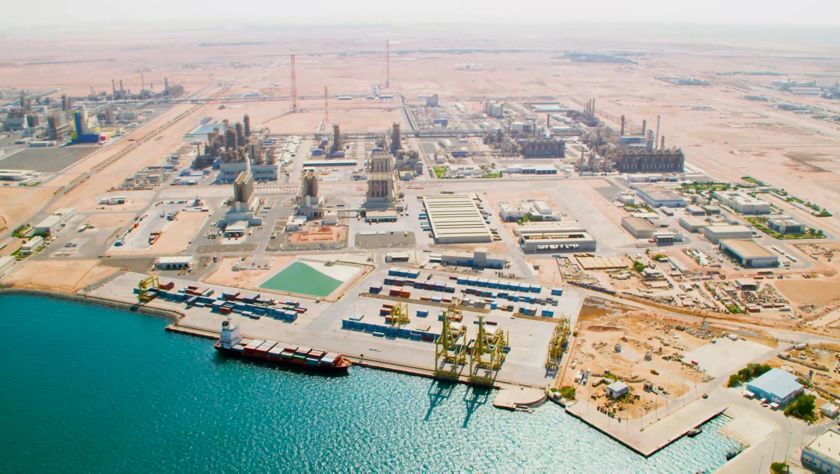
A panoramic view of the Ruwais refinery
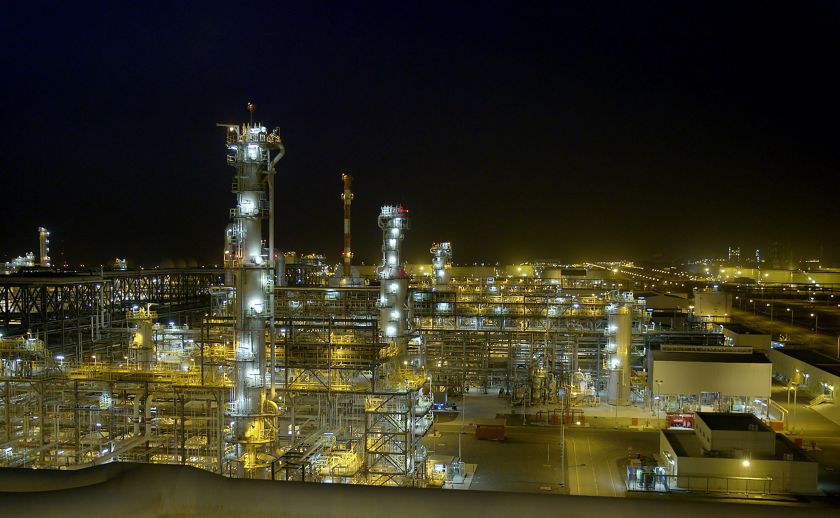
A panoramic view of the Ruwais refinery
annual oil and condensate production (million barrels)
annual gas production (billion cubic feet)
annual hydrocarbons production (millions of barrels of oil equivalent)
Eni's global refining capacity in 2024 with Ruwais
We have been in the UAE since 2019 to develop and diversify our energy portfolio.
The collaboration with the country has been expanded to establish advanced data centres, enhance renewable energy transmission and conduct research into critical minerals.
The Memorandum of Understanding outlines the framework of cooperation for future joint supply projects.
The drilling phase is beginning on exploratory well XF-002, located in Block 2
The document identifies opportunities for cooperation in the field of hydrogen and CO2 capture, utilisation and storage.
We have announced our participation in the Dubai World Expo as Platinum Sponsor of the Italian Pavilion, scheduled from 1 October 2021 to 31 March 2022.
Eni announces the beginning of production at the field located in the interior of the Emirate of Sharjah.
The strategic partnership with Abu Dhabi's national oil company in refining and financial products has been finalised.
The company has acquired the exploration rights for onshore areas A, B and C.
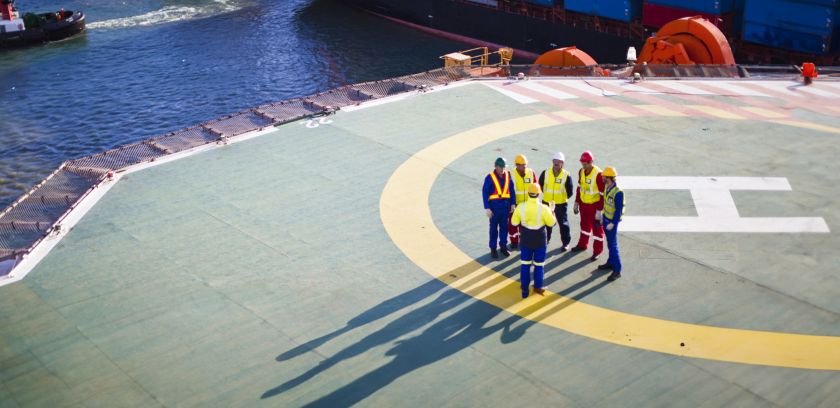
The gas projects at Hail, Ghasha and Dalma in the Al Dhafra region could satisfy more than 20% of the United Arab Emirates’ demand.
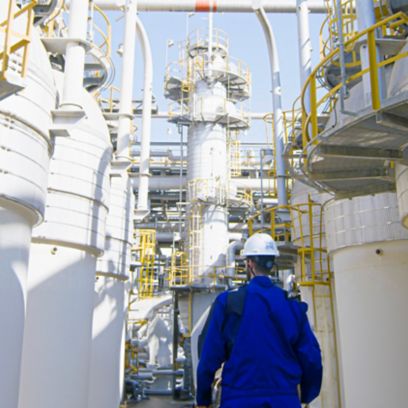
The use of state-of-the-art technology enables a high level of conversion at the refining plant, opening it up to growth.
11th Floor - Cluster O - Reef Tower
Jumeirah Lake Towers, Dubai

If you want to change topic, clear the chat and make a new query to receive more relevant results.
This will delete the question history.
If you want to change topic, clear the chat and make a new query to receive more relevant results. This will delete the question history.
Here you can find the full list of your queries.
The answers are generated by artificial intelligence, therefore they may contain inaccuracies. Please read the terms and conditions of use.

EnergIA is an innovative tool based on artificial intelligence capabilities, which can help you navigate the contents of eni.com, quickly finding answers to your questions. EnergIA can also perform a search on a specific topic, providing the most up-to-date data available, or it can invite you to delve deeper into a topic of your interest by suggesting links and specific readings. Start now!
EnergIA is an innovative tool based on artificial intelligence capabilities, which can help you navigate the contents of eni.com, quickly finding answers to your questions. Start now!
EnergIA (ener'dʒia) is a system based on Generative Artificial Intelligence.
Thanks to this technology, we can respond to your requests by querying the most relevant content and documents available on eni.com. (Note: financial documents from the last 12 months and press releases from the last 2 years are considered.)
Through EnergIA, you can delve into topics of interest and have a real-time window into the world of Eni.
If you wish to search for a specific document, press release or news, use the traditional search engine via the magnifying glass icon.
Like all systems that leverage Generative Artificial Intelligence, EnergIA may generate inaccurate or outdated responses. Always consult the sources that EnergIA proposes as the origin of the generated information.
If the system fails to find an exact match for the requested content, it still tends to provide a response.
If you find any inaccuracies in the provided response, please send us your feedback at the bottom of the page: it will be very helpful for us to improve.
Remember that the content generated by the system does not represent Eni’s official position. We therefore invite stakeholders to refer to their designated contacts for official statements: Press Office for journalists, Investor Relations for analysts and investors, Company Secretariat for shareholders etc..
EnergIA can understand questions posed in almost all languages, but we prefer to provide you with a response in English or Italian, the two languages available on eni.com. If you ask a question in Italian, the content on the site in Italian will be consulted. If you ask it in English or any other language, the content in English will be consulted. (Note: the language Eni uses for financial documents/content is predominantly English.)
If questions are formulated that violate the set security criteria, the system will not proceed with processing the response. Please remember not to send personal data.
By using this service, the users acknowledge that they have read and accepted the terms and conditions of use.
Search
EnergIA (ener'dʒia) is a system based on Generative Artificial Intelligence.
Thanks to this technology, we can respond to your requests by querying the most relevant content and documents available on eni.com. (Note: financial documents from the last 12 months and press releases from the last 2 years are considered.)
Through EnergIA, you can delve into topics of interest and have a real-time window into the world of Eni.
If you wish to search for a specific document, press release or news, use the traditional search engine via the magnifying glass icon.
Like all systems that leverage Generative Artificial Intelligence, EnergIA may generate inaccurate or outdated responses. Always consult the sources that EnergIA proposes as the origin of the generated information.
If the system fails to find an exact match for the requested content, it still tends to provide a response.
If you find any inaccuracies in the provided response, please send us your feedback at the bottom of the page: it will be very helpful for us to improve.
Remember that the content generated by the system does not represent Eni’s official position. We therefore invite stakeholders to refer to their designated contacts for official statements: Press Office for journalists, Investor Relations for analysts and investors, Company Secretariat for shareholders etc..
EnergIA can understand questions posed in almost all languages, but we prefer to provide you with a response in English or Italian, the two languages available on eni.com. If you ask a question in Italian, the content on the site in Italian will be consulted. If you ask it in English or any other language, the content in English will be consulted. (Note: the language Eni uses for financial documents/content is predominantly English.)
If questions are formulated that violate the set security criteria, the system will not proceed with processing the response. Please remember not to send personal data.
By using this service, the users acknowledge that they have read and accepted the terms and conditions of use.
A new window into Eni’s world, at your disposal. EnergIA is an innovative tool based on artificial intelligence capabilities, which can help you navigate the contents of eni.com, quickly finding answers to your questions.
